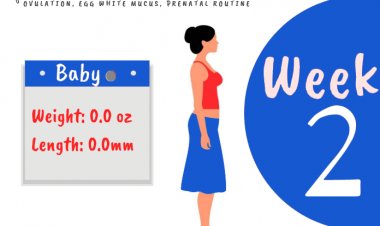Things to know about maternity cover in your health insurance policy
Nowadays people are fully aware of the increasing health expenses along with maternity and child care. Couples make a financial plan to meet the expenses related to child-rearing and pregnancy and delivery. Taking a maternity plan has become a very important part of this plan. But, despite the increasing popularity of maternity cover, policyholders are not yet aware of the essential features of such a policy. That's why, if you want to increase your family then you must know all these things about Maternity Insurance Plan

When is the best time to take maternity cover?
Most of the maternity insurance policies have a waiting period of 3-4 years. This means that you can avail of the benefits provided in the policy only after the completion of the waiting period. Hence, immediately after marriage is the best time to take maternity cover. Nowadays every couple definitely waits for some time to have children, in such a situation it is best to take a maternity policy as a newly married couple.
What are the benefits available under Maternity Policy?
A maternity insurance plan is applicable for both normal and caesarean delivery. The policy has been designed to reduce the expenses incurred during pregnancy, delivery, and post-delivery. Below are the benefits of the policy in a nutshell-
- Takes care of pre and post-hospital expenses
- Takes care of pre and post-delivery expenses
- full protection for the newborn
What are the main things not included in a maternity cover?
Maternity cover benefits are not applicable in the following cases-
- If pregnant at the time of buying the policy. In such cases, the insurer may consider it as a pre-existing condition and will not be covered by the plan.
- If pregnant before the end of the waiting period
Is maternity insurance a default part of health insurance?
No, Maternity Insurance is not a default part of your main health insurance policy. It is a kind of feature i.e. part of the insurance policy. In today's time where maternity expenses, as well as any other medical treatment expenses, are very high, some insurers have started providing maternity cover along with health insurance. Most people buy health insurance thinking that maternity is also a part of it but it is not so. Before taking health insurance, it is very important to get complete information about it from the insurer.
Does maternity insurance cover congenital conditions as well?
A baby born with any kind of abnormality, disease, disability, disease, or condition is considered to have a congenital disease. Some health insurance policies also provide protection against congenital conditions. But, every policy has a different limit. Generally, insurance policies cover the newborn baby within a specified limit for a period of 90 days.
How is the premium amount determined for maternity cover?
Health insurance policies with maternity insurance have a very high premium amount. But, for the couple or family, who thinks of expanding their family in the future, taking maternity cover is the best step. Maternity and pregnancy can prove to be very costly and to reduce the expenses, the couple must take this policy with added benefits.
What if you have a group insurance policy with comprehensive maternity cover?
In such cases, you should focus on your corporate plan only. In this way, there will be no change in your main health insurance plan and you will also get the benefit of a no-claim bonus.
Under what circumstances can a maternity claim be rejected?
For women who become pregnant in the late part of childbearing, usually after the age of 35 years, the claim registered by them may get rejected. This type of pregnancy carries more risks and can also lead to pregnancy-related problems.

 mybabycare
mybabycare 















